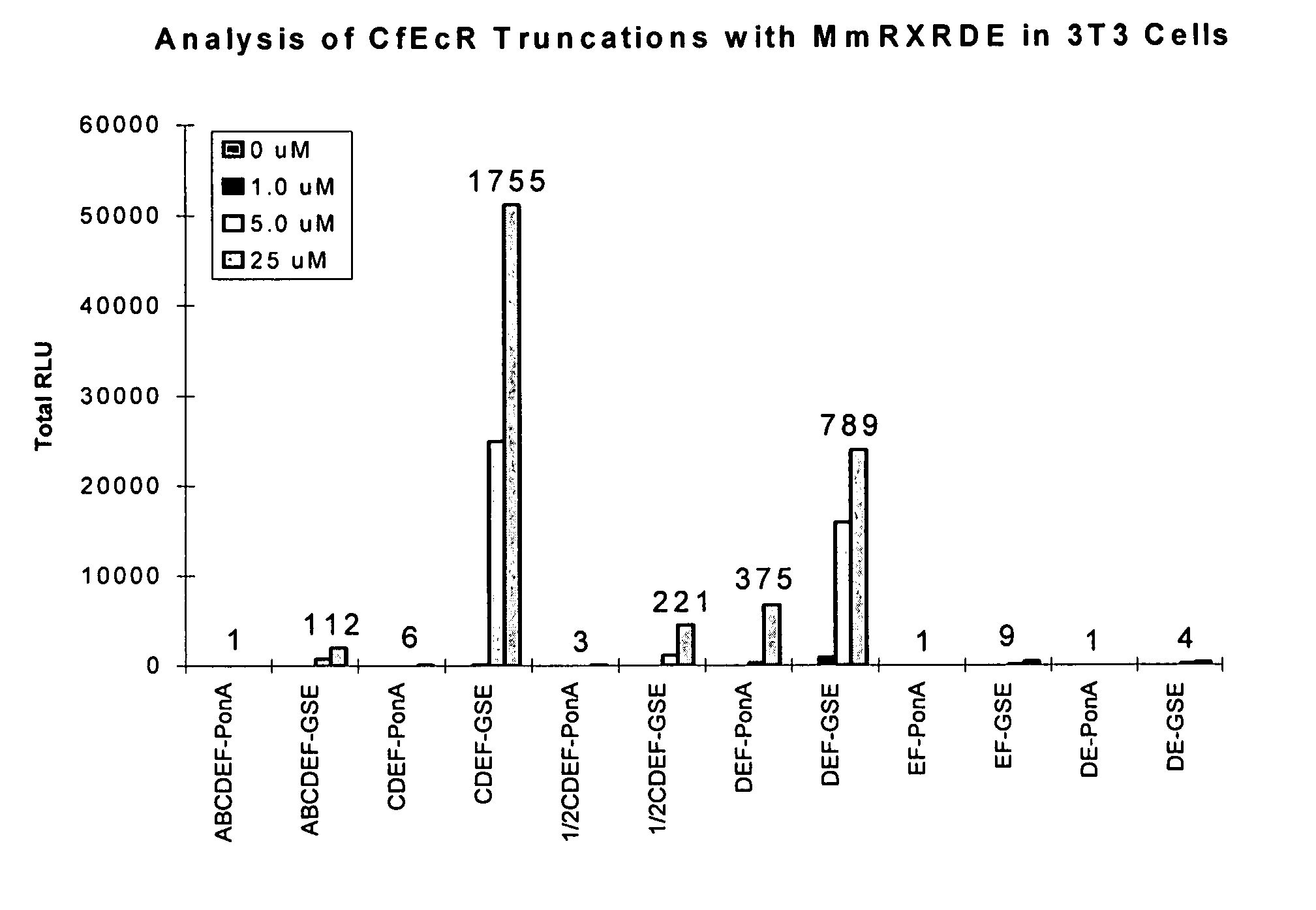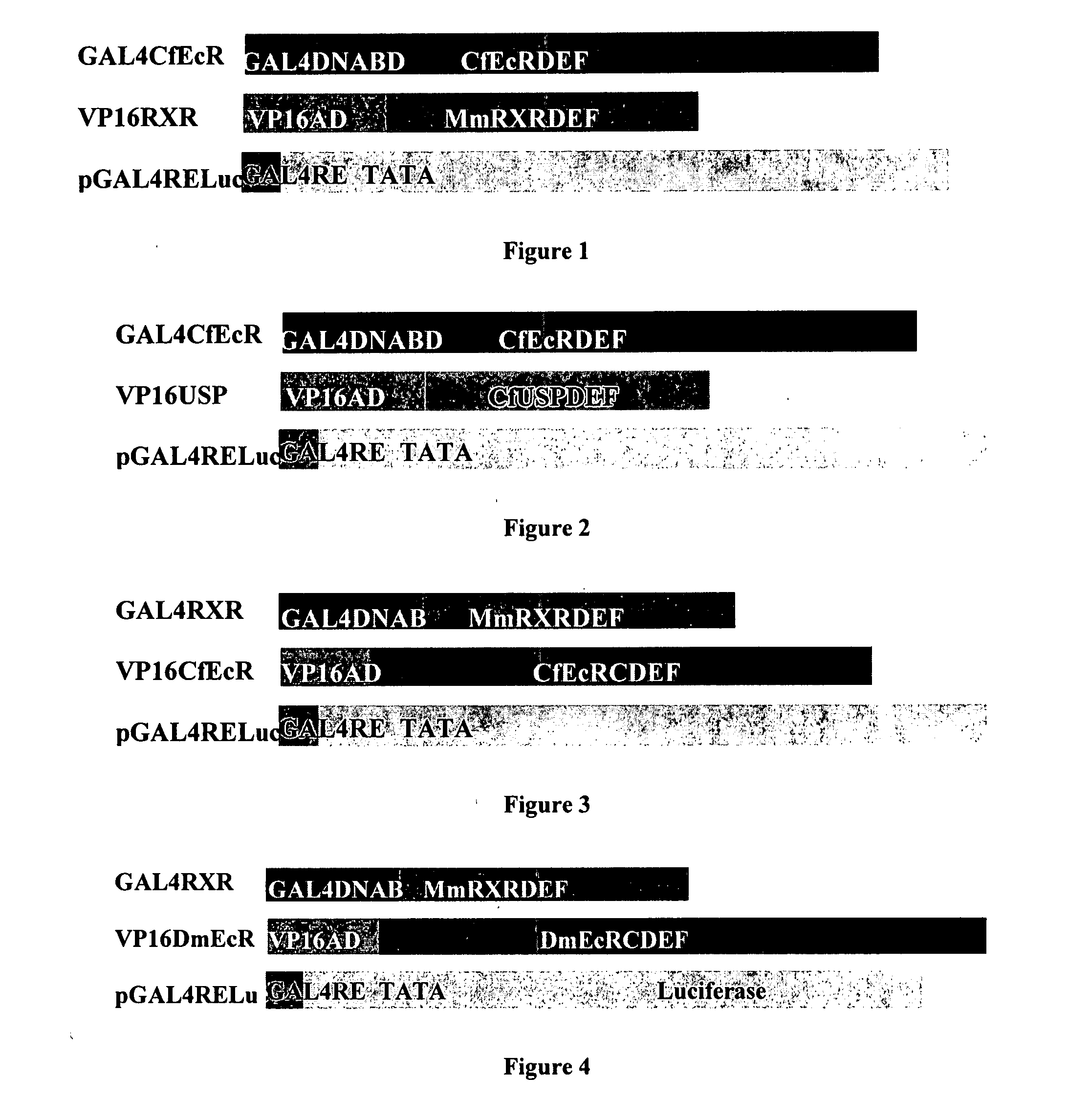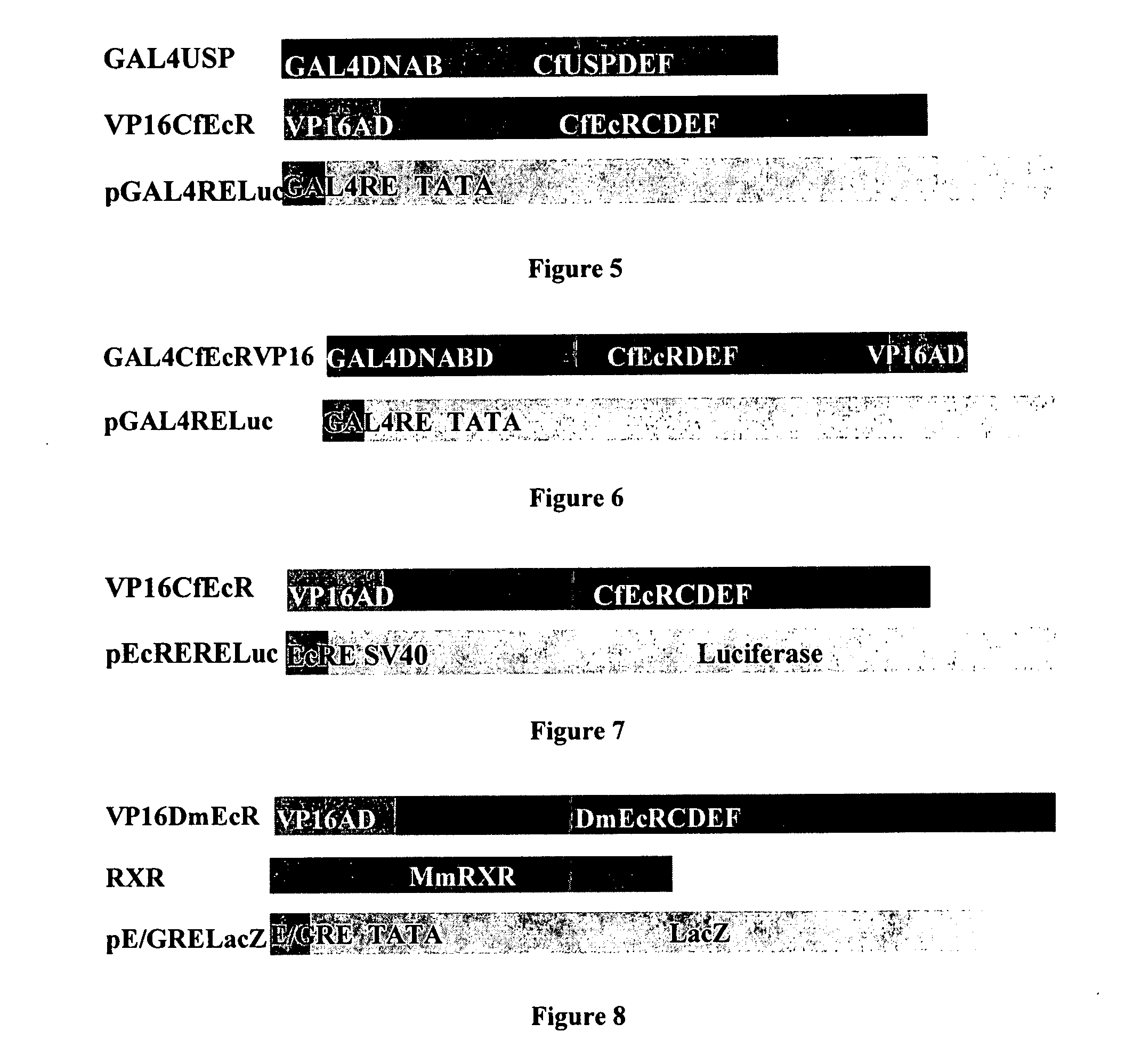Novel ecdysone receptor-based inducible gene expression system
a gene expression system and ecdysone technology, applied in the field of biotechnology or genetic engineering, can solve the problems of system limitation, system leakage, limited use of pr1-a,
- Summary
- Abstract
- Description
- Claims
- Application Information
AI Technical Summary
Problems solved by technology
Method used
Image
Examples
example 1
[0249] Applicants' improved EcR-based inducible gene modulation system was developed for use in various applications including gene therapy, expression of proteins of interest in host cells, production of transgenic organisms, and cell-based assays. This Example describes the construction and evaluation of several gene expression cassettes for use in the EcR-based inducible gene expression system of the invention.
[0250] In various cellular backgrounds, including mammalian cells, insect ecdysone receptor (EcR) heterodimerizes with retinoid X receptor (RXR) and, upon binding of ligand, trans activates genes under the control of ecdysone response elements. Applicants constructed several EcR-based gene expression cassettes based on the spruce budworm Choristoneura fumiferana EcR (“CfEcR”; full length polynucleotide and amino acid sequences are set forth in SEQ ID NO: 49 and SEQ ID NO: 50, respectively), C. fumiferana ultraspiracle (“CfUSP”; full length polynucleotide and amino acid seq...
example 2
[0281] This Example describes Applicants' further analysis of truncated EcR and RXR polypeptides in the improved EcR-based inducible gene expression system of the invention. To identify the best combination and length of two receptors that give a switch with a) maximum induction in the presence of ligand; b) minimum background in the absence of ligand; c) highly sensitive to ligand concentration; and d) minimum cross-talk among ligands and receptors. Applicants made and analyzed several truncation mutations of the CfEcR and MmRXR receptor polypeptides in NIH3T3 cells.
[0282] Briefly, polynucleotides encoding EcR or RXR receptors were truncated at the junctions of A / B, C, D, E and F domains and fused to either a GAL4 DNA binding domain encoding polynucleotide (SEQ ID NO: 41) for CfEcR, or a VP16 activation domain encoding polynucleotide (SEQ ID NO: 45) for MmRXR as described in Example 1. The resulting receptor truncation / fusion polypeptides were assayed in NIH3T3 cells. Plasmid pFRL...
example 3
[0287] This Example describes Applicants' further analysis of gene expression cassettes encoding truncated EcR or RXR receptor polypeptides that affect either ligand binding activity or ligand sensitivity, or both. Briefly, six different combinations of chimeric receptor pairs, constructed as described in Examples 1 and 2, were further analyzed in a single experiment in NIH3T3 cells. These six receptor pair combinations and their corresponding sample numbers are depicted in Table 7.
TABLE 7CfEcR + MmRXR Truncation ReceptorCombinations in NIH3T3 CellsEcR PolypeptideRXR PolypeptideX-Axis Sample No.ConstructConstructSamples 1 and 2GAL4CfEcRCDEFVP16RXRA / BCDEF(Full length)Samples 3 and 4GAL4CfEcRCDEFVP16RXRDEFSamples 5 and 6GAL4CfEcRCDEFVP16RXREFSamples 7 and 8GAL4CfEcRDEFVP16RXRA / BCDEF(Full length)Samples 9 and 10GAL4CfEcRDEFVP16RXRDEFSamples 11 and 12GAL4CfEcRDEFVP16RXREF
[0288] The above receptor construct pairs, along with the reporter plasmid pFRLuc were transfected into NIH3T3 cell...
PUM
| Property | Measurement | Unit |
|---|---|---|
| Tm | aaaaa | aaaaa |
| Tm | aaaaa | aaaaa |
| Tm | aaaaa | aaaaa |
Abstract
Description
Claims
Application Information
 Login to View More
Login to View More - R&D
- Intellectual Property
- Life Sciences
- Materials
- Tech Scout
- Unparalleled Data Quality
- Higher Quality Content
- 60% Fewer Hallucinations
Browse by: Latest US Patents, China's latest patents, Technical Efficacy Thesaurus, Application Domain, Technology Topic, Popular Technical Reports.
© 2025 PatSnap. All rights reserved.Legal|Privacy policy|Modern Slavery Act Transparency Statement|Sitemap|About US| Contact US: help@patsnap.com



